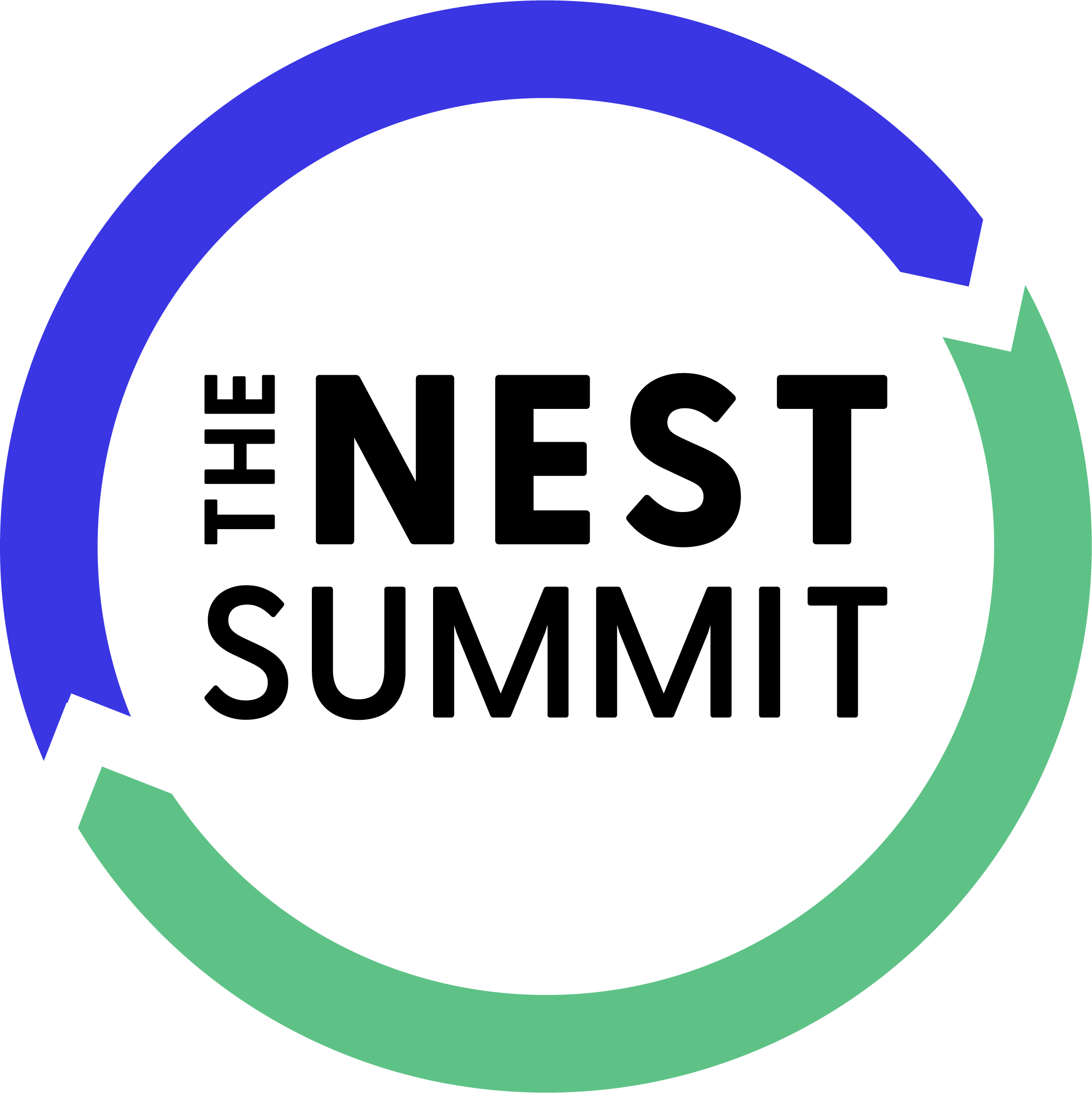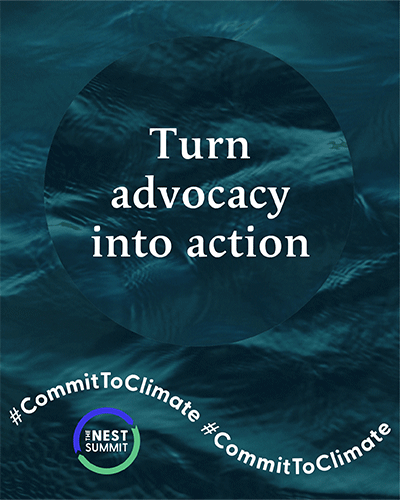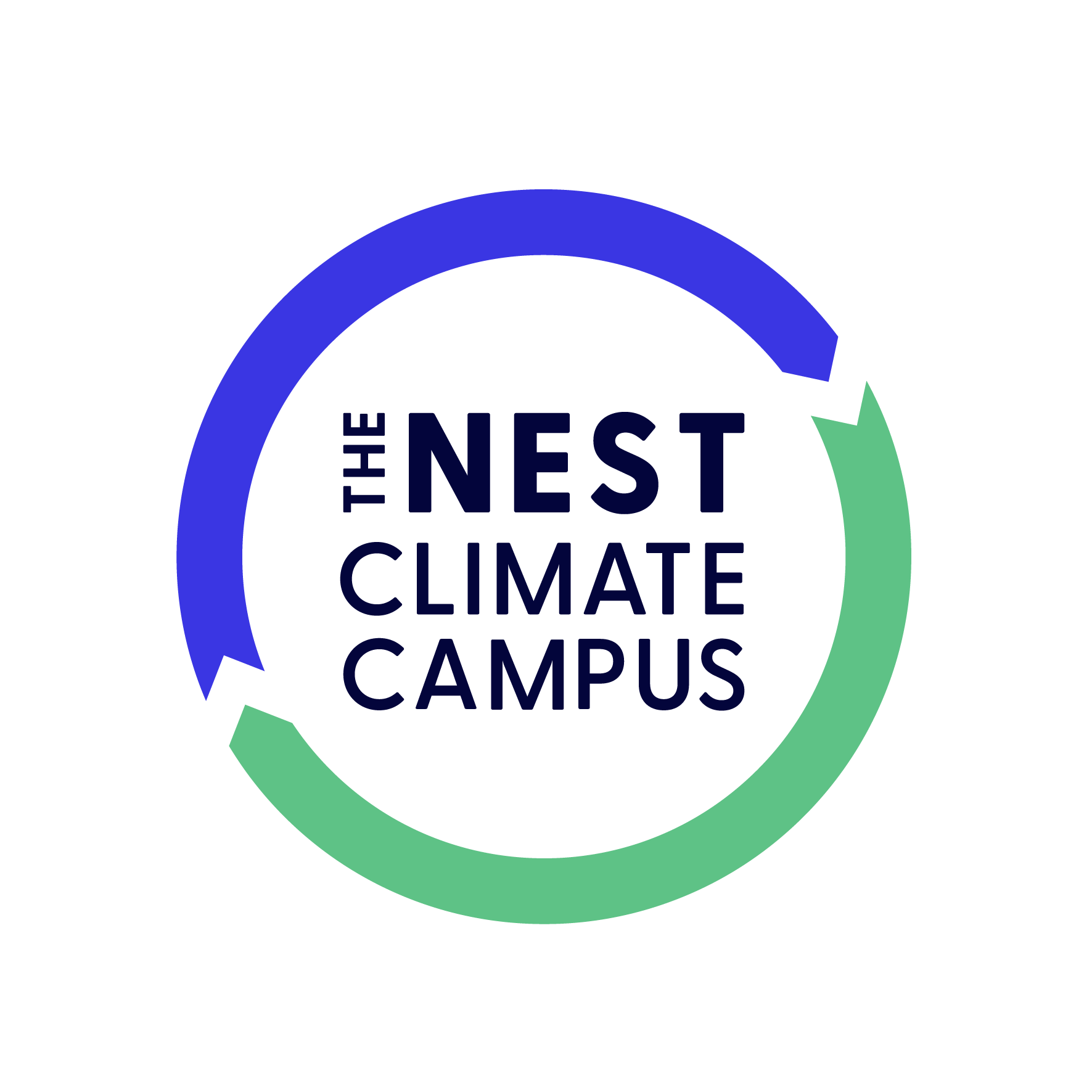Climate Conversations
It’s Electric: Ford on Leading the Auto Electric Revolution at Scale
“You don’t get to be a 118-year-old company by maintaining the status quo or taking the short win. We’re in this for the long haul.” - Bob Holycross
Ford Motor Company has launched an ambitious strategy to reach carbon neutrality no later than 2050, electrifying its most iconic, popular vehicles and investing in electric vehicle technology and sustainable manufacturing.
During two sessions at The Nest Summit — Building for a More Sustainable America, hosted by Academy Award-winning filmmaker Jimmy Chin, and a class on electric vehicle ownership — Ford will explore how, by putting people first and leveraging the power of transportation to create opportunity, we can help build a more sustainable world.
Below, Bob Holycross, VP, Chief Sustainability, Environment & Safety Officer at Ford, discusses how the company is approaching the electrification revolution in vehicles and the importance of sustainable practices at a company that’s over 100 years old.
In conversation with: Bob Holycross, VP, Chief Sustainability, Environment & Safety Officer at Ford

How has climate change influenced the way your organization does business?
At Ford, doing our share to meet the collective challenge of climate change is a key responsibility and a strategic priority. For more than a decade, we have developed a comprehensive science-based approach that helps us address the issues associated with our changing climate.
Ford has set both long-term and near-term goals to address climate change. We aim to achieve carbon neutrality for our vehicles, facilities, and suppliers no later than 2050. We continue to stand with California and the Environmental Protection Agency in seeking strong greenhouse gas (GHG) standards. And we are offering electrified versions of our most popular vehicles.

What’s an aspect of climate change your organization or industry is uniquely equipped to address?
Our ambition at Ford is to lead the electric revolution in the automotive industry. Right now, we’re focused on building the future of zero tailpipe emissions vehicles; removing obstacles to electrification by investing more than $30 billion by 2025 in electrification, including batteries; and reducing emissions across our operations and supply chain.
I believe Ford is uniquely equipped to lead the electric revolution at scale. We’re not only electrifying our signature nameplates in areas where millions of customers already rely on Ford vehicles, we’re showing customers the clear advantages of electric vehicles – from sustainability to performance, power, and digital integration.

Describe one innovation your organization has put into place to respond to/combat the effects of climate change.
Ford has a long history of pioneering research into renewable materials. Since 2000 we have introduced 12 industry-first and world-first plant-based materials into our production vehicles. And we understand the importance of continuing to reduce our impact on the environment.
One example of our innovative research into renewable materials is our recent collaboration with McDonald’s in the U.S. We used coffee chaff – the dried skin of the coffee bean – to make a durable material to reinforce headlamp housings on the Lincoln Continental. The resulting components will be about 20 percent lighter and require up to 25 percent less energy during the molding process. They also have significantly better heat resistance properties than traditional materials.

Fast-forward a decade into the future. How has your organization scaled up its efforts to address climate change?
You don’t get to be a 118-year-old company by maintaining the status quo or taking the short win. We’re in this for the long haul. Leading the electrification revolution and prioritizing sustainable practices enables our business today and sets us on the pathway for a continued strong business for decades to come.
Ten years from now, in 2031, Ford will have made significant progress in our goal to be carbon neutral no later than 2050, by following science-based targets. By 2031, we will have invested more than $30 billion dollars in electrification, and we expect that 40% of our global vehicle mix will be fully electric. In that process, we’ll be electrifying our most popular nameplates - vehicles that people love, know and trust - which will be a major turning point in EV use in the United States, and an important step in addressing climate change.

How is your organization using the power of emotion to encourage climate action?
To turn the tide against climate change, the transportation industry needs to support the cultural shift required for consumers to embrace electric vehicles. And consumers must move beyond passive support, to make more sustainable behavioral and spending decisions.
Automakers also need to deliver essential products consumers want, and show customers the clear advantages of electric vehicles. Take the F-150 Lightning pickup, for example. The F-Series has been the best-selling vehicle for 39 years in a row. People love it and feel emotional about it. If we can harness that kind of emotion, it will greatly help people make this cultural shift towards EVs.

How does your organization relate climate change to Diversity, Equity, and Inclusion (DEI) efforts?
Caring for others means speaking up where our voice will make a difference to advance social justice, equity, and human rights in communities across the world. It also means working to unleash the power of mobility to create access to opportunity – from jobs to education and healthcare.
Ford laid out our commitment to human rights in our newly published policy, “We Are Committed to Protecting Human Rights and the Environment,” and we have taken clear actions to live up to our commitments. Ford produced a supplier code of conduct in early 2021, outlining expectations and standards for our suppliers and business partners. We became the first American automaker to join the Initiative for Responsible Mining Assurance, for responsible sourcing of raw materials. And we were the first major U.S. automaker to sign the UN’s Action Pledge for the Elimination of Child Labor, which outlines steps companies can take to end child labor by 2025.
To increase awareness and accountability, all Ford corporate officers now have DEI-based performance objectives to cultivate belonging. Ford has also made its diversity data publicly available.

What aspects of speaking at the Nest Summit most excite your team?
Ford is thrilled to be part of the Nest Summit this year. The Nest Summit provides a forum in which people from diverse backgrounds are able to come together to discuss the most pressing issue of our time: climate change. Bringing all of these voices together creates an important space to generate new, innovative ideas that can help tackle the issues we face, and will hopefully inspire continued, solutions-oriented conversations within the community. We are so excited to share our deep knowledge of these issues from Ford’s perspective, while continuing to learn from our partners, panelists, and guests.






